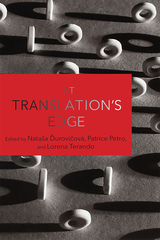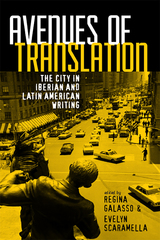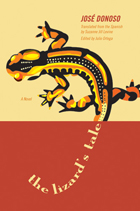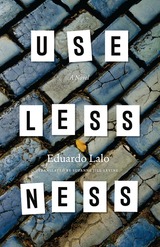4 books about Levine, Suzanne Jill

At Translation's Edge
Edited by Nataša Durovicová, Patrice Petro, and Lorena Terando
Rutgers University Press, 2019
Since the 1970s, the field of Translation Studies has entered into dialogue with an array of other disciplines, sustaining a close but contentious relationship with literary translation. At Translation’s Edge expands this interdisciplinary dialogue by taking up questions of translation across sub-fields and within disciplines, including film and media studies, comparative literature, history, and education among others. For the contributors to this volume, translation is understood in its most expansive, transdisciplinary sense: translation as exchange, migration, and mobility, including cross-cultural communication and media circulation. Whether exploring the Universal Declaration of Human Rights or silent film intertitles, this volume brings together the work of scholars aiming to address the edges of Translation Studies while engaging with major and minor languages, colonial and post-colonial studies, feminism and disability studies, and theories of globalization and empire.
[more]

Avenues of Translation
The City in Iberian and Latin American Writing
Galasso, Regina
Bucknell University Press, 2019
Winner of the 2020 SAMLA Studies Book Award — Edited Collection
Cities both near and far communicate in a variety of ways. Travel between, through, and among urban centers initiates contact, and cities themselves are sites of ever-changing cultural and historical encounters. Predictable and surprising challenges and opportunities arise when city borders are crossed, voices meet, and artistic traditions find their counterparts. Using the Latin word for “translation,” translatio, or “to carry across,” as a point of departure, Avenues of Translation explores how translation perpetuates, diversifies, deepens, and expands the literary production of cities in their greater cultural context, and how translation shapes an understanding of and access to a city's past and present literary and cultural practices. Thinking about translation and the city is a way to tell the backstories of the cities, texts, and authors that are united by acts of translation.
Published by Bucknell University Press. Distributed worldwide by Rutgers University Press.
Cities both near and far communicate in a variety of ways. Travel between, through, and among urban centers initiates contact, and cities themselves are sites of ever-changing cultural and historical encounters. Predictable and surprising challenges and opportunities arise when city borders are crossed, voices meet, and artistic traditions find their counterparts. Using the Latin word for “translation,” translatio, or “to carry across,” as a point of departure, Avenues of Translation explores how translation perpetuates, diversifies, deepens, and expands the literary production of cities in their greater cultural context, and how translation shapes an understanding of and access to a city's past and present literary and cultural practices. Thinking about translation and the city is a way to tell the backstories of the cities, texts, and authors that are united by acts of translation.
Published by Bucknell University Press. Distributed worldwide by Rutgers University Press.
[more]

The Lizard's Tale
A Novel
José Donoso, translated from the Spanish by Suzanne Levine
Northwestern University Press, 2011
Winner of the 2012 PEN Center USA Literary Award for Translation
José Donoso was the leading Chilean representative of the Latin American “Boom” of the sixties and seventies that included Gabriel García Márquez, Mario Vargas Llosa, and Manuel Puig, among others. Written as a draft in 1973, set aside, and forgotten, The Lizard’s Tale was discovered among Donoso’s papers at Princeton University by his daughter after his death. Edited for publication by critic and poet Julio Ortega, it was published posthumously in Spanish under the title Lagartija sin cola in 2007. Suzanne Jill Levine, who knew Donoso and translated two of his earlier works, brings the book to an English-language audience for the first time.
Defeated and hiding in his Barcelona apartment, painter Antonio Muñoz-Roa—Donoso’s alter ego—relates the story of his flight with Luisa, his cousin, lover, and benefactor, after his scandalous desertion from the “Informalist” movement (a witty reference to a contemporary Spanish art movement and possibly an allusion to the Boom as well), in which he had been a member of a certain standing. Frustrated, old, and alone, the artist looks back on his years in the small town of Dors, a place he unsuccessfully tried to rescue from the crushing advance of modernity, and on the decline of his own family, also threatened by the changing times. In Levine’s able hands, Donoso’s clear prose shines through, forming a compact, powerful, and still-relevant meditation on the commercialization of art and the very places we inhabit.
José Donoso was the leading Chilean representative of the Latin American “Boom” of the sixties and seventies that included Gabriel García Márquez, Mario Vargas Llosa, and Manuel Puig, among others. Written as a draft in 1973, set aside, and forgotten, The Lizard’s Tale was discovered among Donoso’s papers at Princeton University by his daughter after his death. Edited for publication by critic and poet Julio Ortega, it was published posthumously in Spanish under the title Lagartija sin cola in 2007. Suzanne Jill Levine, who knew Donoso and translated two of his earlier works, brings the book to an English-language audience for the first time.
Defeated and hiding in his Barcelona apartment, painter Antonio Muñoz-Roa—Donoso’s alter ego—relates the story of his flight with Luisa, his cousin, lover, and benefactor, after his scandalous desertion from the “Informalist” movement (a witty reference to a contemporary Spanish art movement and possibly an allusion to the Boom as well), in which he had been a member of a certain standing. Frustrated, old, and alone, the artist looks back on his years in the small town of Dors, a place he unsuccessfully tried to rescue from the crushing advance of modernity, and on the decline of his own family, also threatened by the changing times. In Levine’s able hands, Donoso’s clear prose shines through, forming a compact, powerful, and still-relevant meditation on the commercialization of art and the very places we inhabit.
[more]

Uselessness
A Novel
Eduardo Lalo
University of Chicago Press, 2017
The streets of Paris at night are pathways coursing with light and shadow, channels along which identity may be formed and lost, where the grand inflow of history, art, language, and thought—and of love—can both inspire and enfeeble. For the narrator of Eduardo Lalo’s Uselessness, it is a world long desired. But as this young aspiring writer discovers upon leaving his home in San Juan to study—to live and be reborn—in the city of his dreams, Paris’s twinned influences can rip you apart.
Lalo’s first novel, Uselessness is something of a bildungsroman of his own student days in Paris. But more than this, it is a literary précis of his oeuvre—of themes that obsess him still. Told in two parts, Uselessness first follows our narrator through his romantic and intellectual awakenings in Paris, where he elevates his adopted home over the moribund one he has left behind. But as he falls in and out of love he comes to realize that as a Puerto Rican, he will always be apart. Ending the greatest romance of his life—that with the city of Paris itself—he returns to San Juan. And in this new era of his life, he is forced to confront choices made, ambitions lost or unmet—to look upon lives not lived.
A tale of the travails of youthful romance and adult acceptance, of foreignness and isolation both at home and abroad, and of the stultifying power of the desire to belong—and to be moved—Uselessness is here rendered into English by the masterful translator Suzanne Jill Levine. For anyone who has been touched by the disquieting passion of Paris, Uselessness is a stirring saga.
Lalo’s first novel, Uselessness is something of a bildungsroman of his own student days in Paris. But more than this, it is a literary précis of his oeuvre—of themes that obsess him still. Told in two parts, Uselessness first follows our narrator through his romantic and intellectual awakenings in Paris, where he elevates his adopted home over the moribund one he has left behind. But as he falls in and out of love he comes to realize that as a Puerto Rican, he will always be apart. Ending the greatest romance of his life—that with the city of Paris itself—he returns to San Juan. And in this new era of his life, he is forced to confront choices made, ambitions lost or unmet—to look upon lives not lived.
A tale of the travails of youthful romance and adult acceptance, of foreignness and isolation both at home and abroad, and of the stultifying power of the desire to belong—and to be moved—Uselessness is here rendered into English by the masterful translator Suzanne Jill Levine. For anyone who has been touched by the disquieting passion of Paris, Uselessness is a stirring saga.
[more]
READERS
Browse our collection.
PUBLISHERS
See BiblioVault's publisher services.
STUDENT SERVICES
Files for college accessibility offices.
UChicago Accessibility Resources
home | accessibility | search | about | contact us
BiblioVault ® 2001 - 2024
The University of Chicago Press









